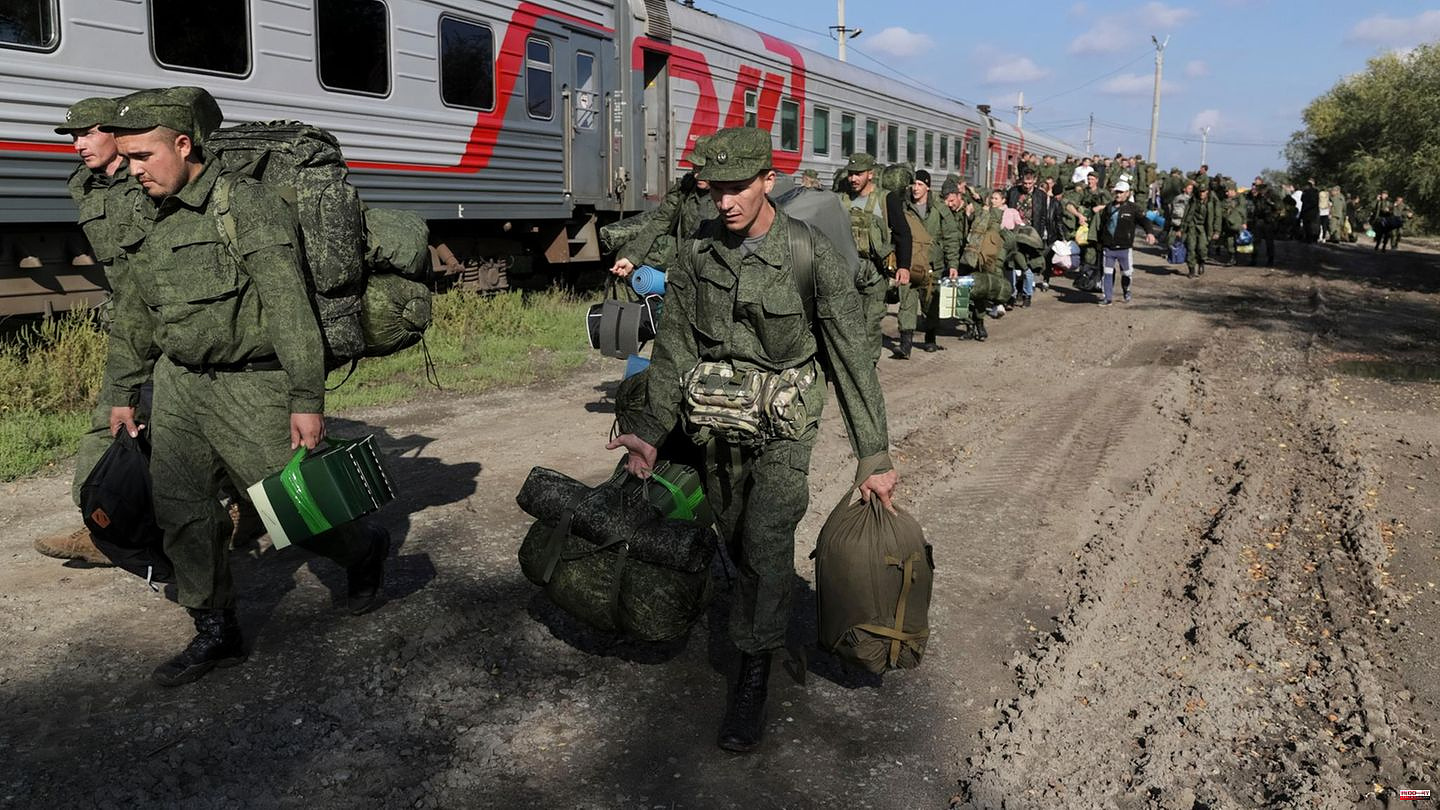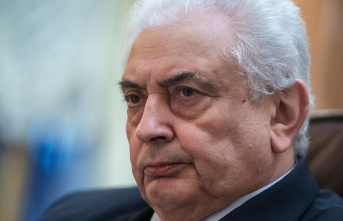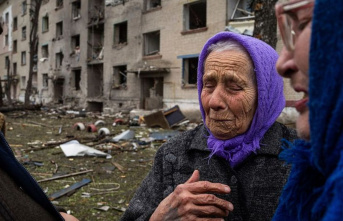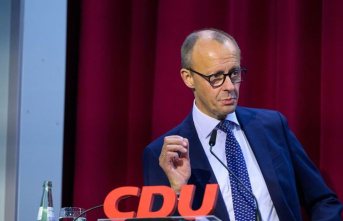The fact that the Russian campaign is actually going anything but according to plan, as the Kremlin has once again claimed, can be seen from a number: 224. The war against Ukraine has now lasted more than seven months, which in Russia is still known as a "military special operation ", and actually should have been beaten in a few days. Well, that was the plan anyway. The reality is different on the 224th day of the war.
With their counter-offensive, the Ukrainian troops are putting more and more pressure on the Russian occupiers and are recapturing areas practically every day. It was "only a matter of time," said Ukrainian President Volodymyr Zelensky on Tuesday evening, before the Ukrainians "drive the occupiers out of our entire territory." In the past few days alone, dozens of towns have been liberated from Russian hands, even in those regions that Russia considers its own after illegal referendums.
The momentum lies with Ukraine, observers state. So far, the "partial mobilization" of hundreds of thousands of Russian reservists, with which President Vladimir Putin wants to compensate for the apparently high losses at the front, has not been able to change anything. And it is questionable whether the hoped-for trend reversal will materialize at all.
The Russian army announced alleged successes in the so-called partial mobilization. "So far, more than 200,000 people have joined the army," Defense Minister Sergei Shoigu said on Tuesday, according to Russian news agencies. However, a look behind the announced figures raises doubts as to whether Moscow can actually be considered a success.
In general, according to Western military analyzes and observers, it is unlikely that partial mobilization will change the dynamics of the war, at least in the short term.
A situation report released on Tuesday by the renowned Institute for the Study of War (ISW) said that Russia's mobilization system suffers from "serious bureaucratic challenges and limitations that could undermine Putin's efforts to deploy the number of troops he needs for the continuation of the struggle in Ukraine is needed."
In it, the Washington research group also cited accounts of Russian men hiding in their homes to avoid receiving their draft notices. In addition, the organization described the Russian military as a "chaotic conglomeration of exhausted contract soldiers, hastily mobilized reservists, conscripts and mercenaries".
Even Russian war advocates - including bloggers and propagandists who often have direct access to the troops at the front - apparently believe that the Russian campaign will be a personnel and operational crisis.
One blogger described the situation in Kherson as "critical", as the New York Times reported, while another said that Russian forces in the province were vastly outnumbered. "We just don't have enough people," the US broadcaster CNN quoted a Russian correspondent who reported from Lyman for the pro-Kremlin tabloid "Komsomolskaya Pravda". According to Ukrainian information, the strategically important city has now been completely recaptured.
According to the Russian reporter, the Lyman forces suffered from understaffing, poor communications and mistakes by the commanding officers. Fatigue had crept in on the Russian side, while Ukraine had sent well-prepared reserve personnel to the front. "We needed this unexpected blow to understand how things really are," he was quoted as saying by CNN.
The reports from the front coincide with the assessment of Western experts, according to which the Ukrainian counter-offensive is causing enormous problems for the Russian units on several fronts. "Ukraine is dictating the pace at the moment," a representative of Western security circles said in a briefing to journalists in London. Some Russian units are under so much pressure that they feel compelled to retreat - sometimes against the will of the Russian leadership.
As a result, Moscow is no longer able to provide sufficient equipment and military training for a large number of recruits. One indication is that the conscription cycle is set to start a month later than usual this year, the UK Defense Ministry's daily briefing said on Tuesday. The annual call-up of about 120,000 conscripts in Russia differs from the ongoing partial mobilization of reservists.
But the obvious problems with the supply are also evident elsewhere:
Russia's President Putin is putting this under pressure, especially since criticism of his conduct of the war is also growing louder in his own country. The illegal annexation of four Ukrainian territories, which are still fought over, is likely to be a consequence of the series of setbacks: under Russian law, they are intended to give him the nuclear option, i.e. the greatest possible escalation of the war (read more about this here).
Both the partial mobilization and the sham referendums point to a "clear military weakness in Russia," said political scientist Gerhard Mangott at the University of Innsbruck at the end of September to Stern. "Putin sees himself forced to take these measures, despite the many political risks and the growing resentment among his own people."
Against this background, Kyiv reacted with a certain satisfaction to the mobilization ordered by Putin. On the 210th day of the war, Mykhailo Podoliak, an external advisor to the Ukrainian presidential office, asked on Twitter: "Is everything still going according to plan or not?"
Sources: "New York Times", CNN, Institute for the Study of War, "Foreign Policy", "Ukrainska Pravda", Redaktionsnetzwerk Deutschland, ORF, with material from the news agencies DPA and AFP












